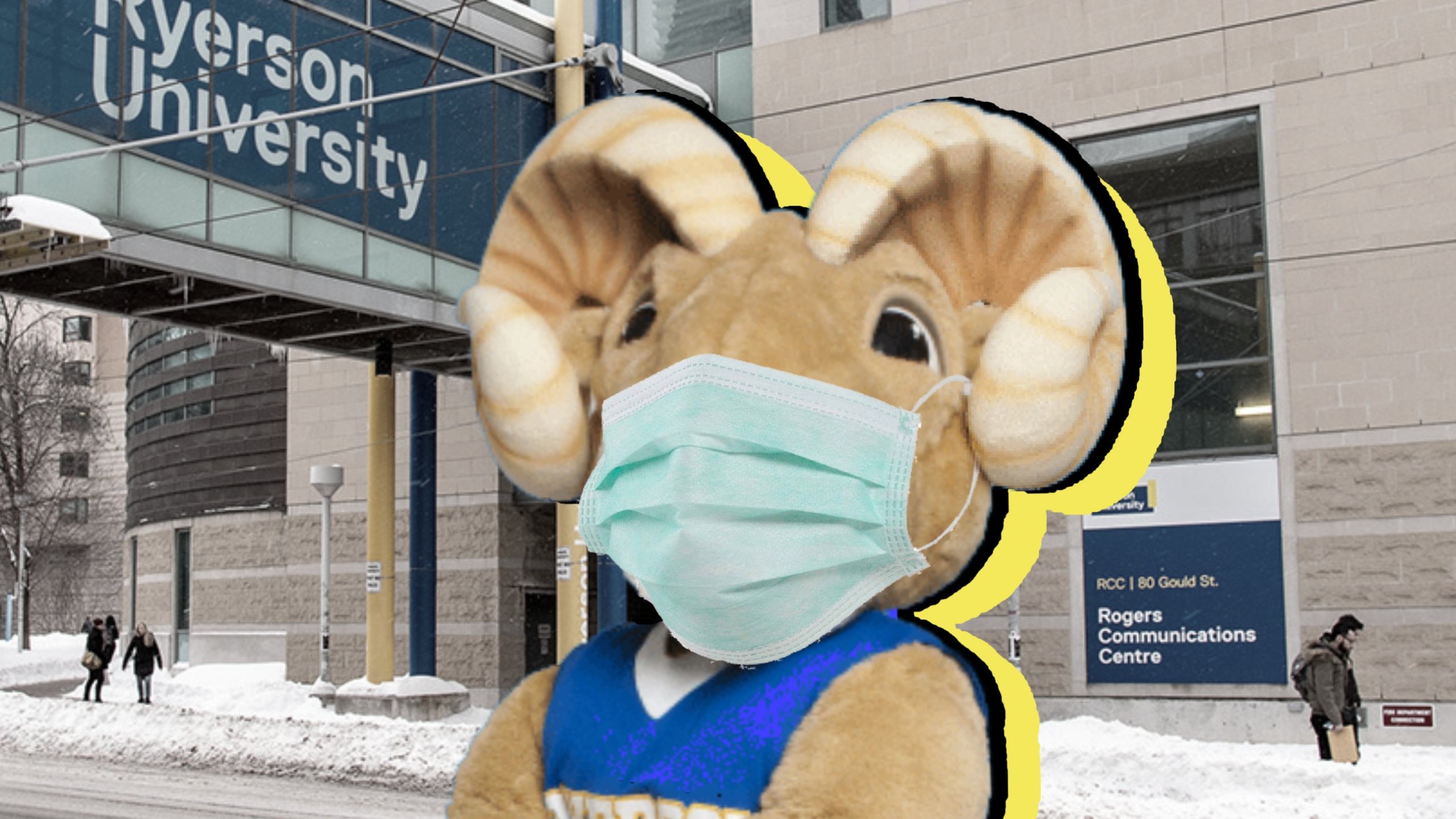By Juliana Pandurevic
Ryerson community members expressed mixed reactions following the university’s decision to keep masking and vaccine mandates in place for the rest of the winter term, despite Ontario lifting mask mandates in most public spaces on March 21.
In a statement released on March 11, the Council of Ontario Universities (COU) announced that post-secondary schools in the province will maintain COVID-19 measures for the remainder of the semester, to “minimize uncertainty and disruption.”
The COU is a coalition of Ontario’s 20 publicly funded universities, including Ryerson, the University of Toronto, McMaster University and the University of Waterloo.
On March 17, Ryerson University announced that all COVID-19 measures will remain in place for the rest of the semester.
These include mandatory masking, proof of vaccination, ongoing daily health screening and physical distancing.
For some students, the news serves as a relief. Cindy Tran, a first-year English student, said the decision was “a smart move.”
“I can’t imagine coming to campus without any health and safety restrictions. I’m so glad they decided to keep them until the end of the semester,” she said.
Other students, however, say they feel masks are a barrier that prevents them from connecting with their peers.
Sam Couteau, a second-year business student, said he wishes the COU left the decision up to individuals.
“It’s hard, when you look at other countries around the world and they’re living life just fine without masks. If some people want to wear them, sure, but I think students should have the right to choose,” he said.
“I can’t imagine coming to campus without any health and safety restrictions. I’m so glad they decided to keep them until the end of the semester”
In an email to The Eyeopener, Bethany Osborne, director of communications for the Ontario Ministry of Colleges and Universities, said “publicly-assisted colleges and universities in Ontario are legally autonomous and have the discretion to maintain vaccination policies on their campuses.”
Ryerson University president Mohamed Lachemi said the council’s decision was made to prevent any disruptions.
“We thought making such changes in the middle of the semester would cause miscommunication, misinformation and also confusion for our students, faculty and staff,” said Lachemi. “The idea was, let’s not do it in the middle of the semester. Let’s keep the restrictions and finish the semester.”
When asked if the COU had any influence in Ryerson’s decision to keep mandates in place, Lachemi said the goal was to be in consensus with the other council members.
“The COU does not impose views, but we did want to have a common position with the other universities for this semester,” Lachemi said.
The COU did not respond to a request for comment.
According to James Tiessen, director of Ryerson’s master of health administration and community care program, the council’s decision shows a “front of unity.”
“This decision is a good thing because it shows that the universities are presenting a fairly consistent front on this policy. Last year the approaches were all very different, it was kind of stop and start, but now the universities are organized and present a consistent front,” said Tiessen.
“It’s important for people to remember that the pandemic is still not over. With the warm weather approaching, it was best for the council to take the approach that increases the safety and comfort level of students,” Tiessen added.
As of March 21, masks are no longer required in classrooms, restaurants and bars, gyms and movie theatres across the province.
Ontario school boards such as the Toronto District School Board placed formal requests to put a hold on the lifting of mask mandates in schools. The requests were denied by the province on March 17.
In a letter addressed to the school boards, Dr. Kieran Moore, Ontario’s chief medical officer of health, said now that the Omicron wave’s peak has passed, restrictions can start being lifted.
“We are able to take a more balanced and longer-term approach to the province’s pandemic response, including in Ontario schools, by removing many of the emergency measures that have been in place over the past two years,” he wrote.
Some healthcare professionals say publicly funded universities made the right decision to keep COVID-19 protocols in place.
Maria Sousa, a nurse at Trillium Health Partners, said the virus is still spreading and the COU’s decision comes at a time when caution is still needed.
“We’re still trying to learn to live with this virus for the long term, including its different variants,” Sousa said.
“There are still many vulnerable people out there. The decision made by the universities shows that they are leaning on the side of caution, which is always a good thing.”













Killer Marmot
Returning to normal life is going to be a shock to some, who may have developed a psychological addiction to masking and other precautions.